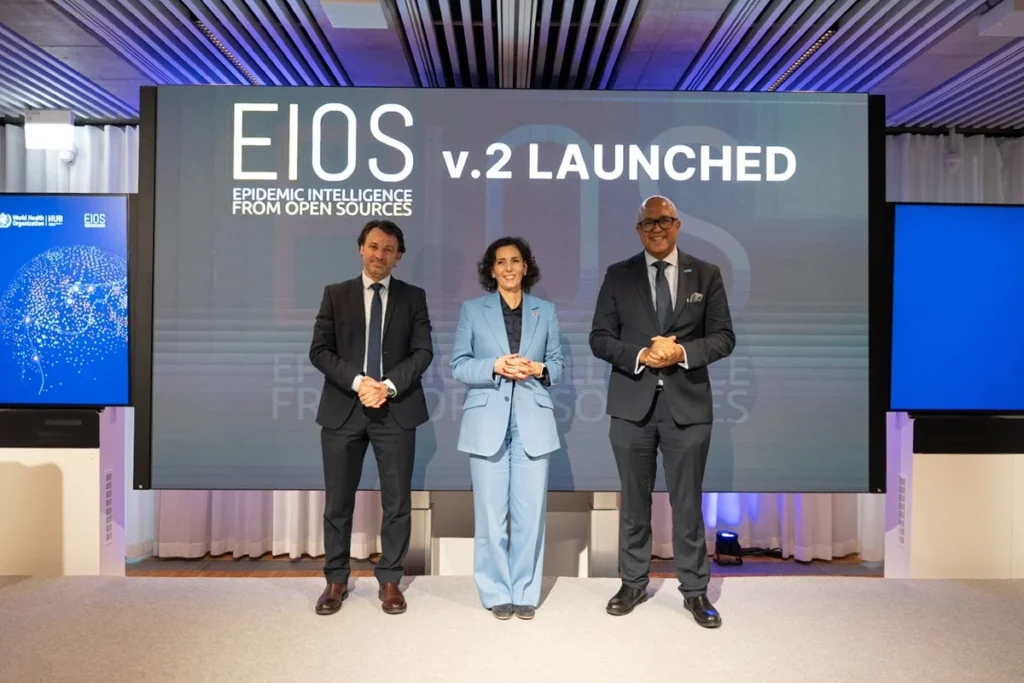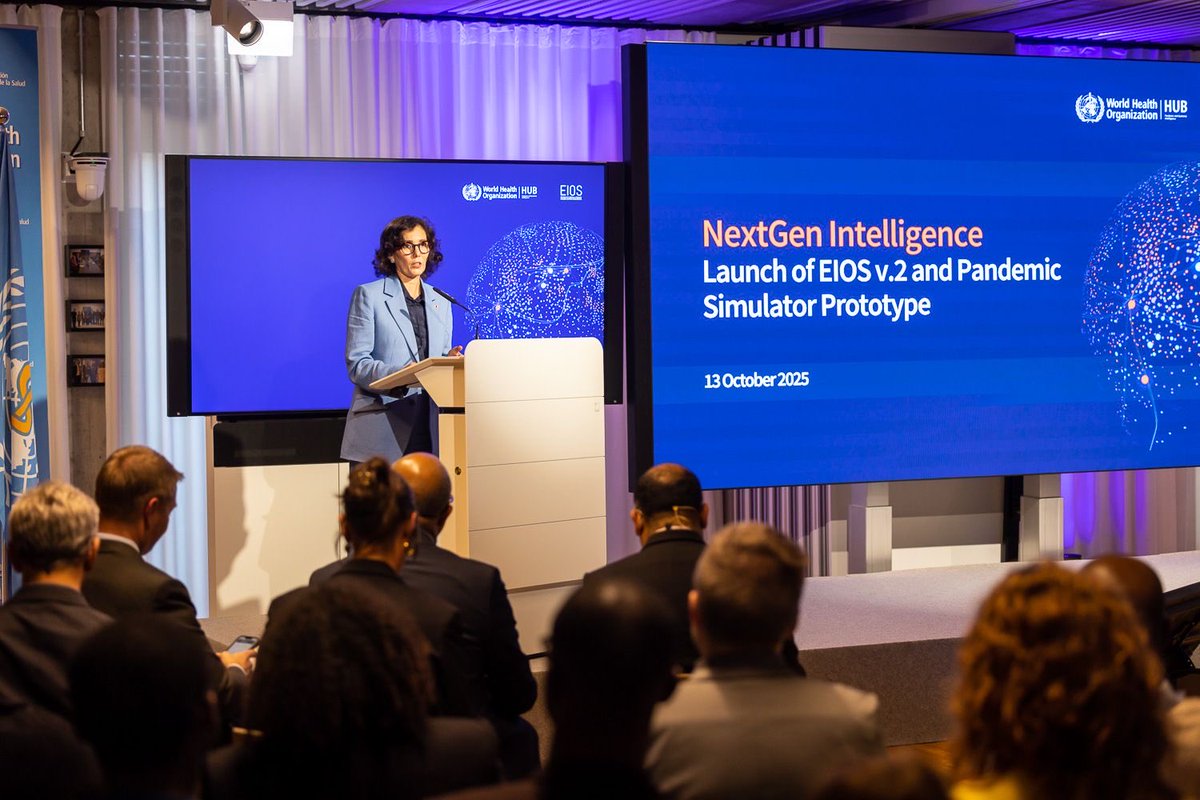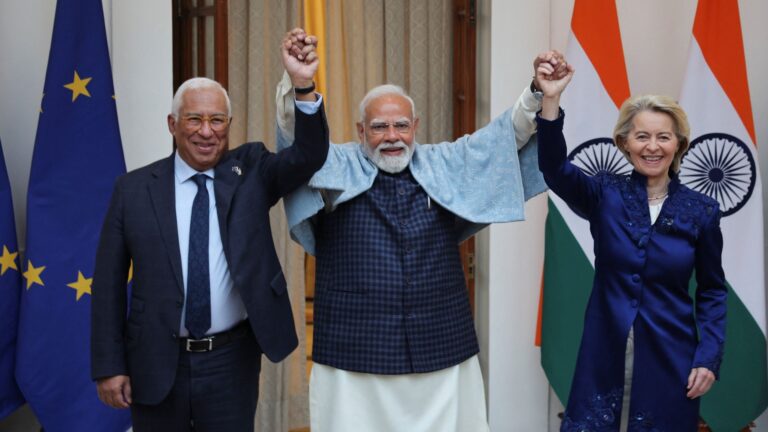
In a major step toward strengthening global health security, the World Health Organization (WHO) has unveiled an upgraded Public Health Intelligence System aimed at improving early detection and response to disease outbreaks worldwide. Announced in Berlin on 13 October 2025, the initiative boosts WHO’s ability to monitor health threats in real time. It uses advanced analytics, AI, and cross-border data sharing to help prevent future pandemics.
WHO: A Global Milestone in Disease Surveillance
On 13th October, the World Health Organization (WHO), in partnership with key global collaborators, unveiled version 2.0 of the Epidemic Intelligence from Open Sources (EIOS) system. It is a major upgrade to its global platform for the early detection of public health threats.
Launched in 2017, the EIOS initiative has grown rapidly. It now supports over 110 Member States and nearly 30 international organizations and networks.
The updated version adds new data sources and advanced features. With AI integration, it improves the speed and accuracy of detecting emerging health risks.
Hosted at the WHO Hub for Pandemic and Epidemic Intelligence in Berlin, EIOS stands as the world’s foremost open-source intelligence platform for public health decision-making. It enables health authorities to monitor, analyze, and respond to potential outbreaks by processing vast amounts of publicly available information in near real time.
AI and Innovation at the Core
The description provided matches the Epidemic Intelligence from Open Sources (EIOS) system. It is an initiative of the WHO Hub for Pandemic and Epidemic Intelligence. This AI-powered platform gathers and analyzes real-time data from multiple sources. It helps detect and respond to public health threats before they escalate into global crises.
- Built for growth: The system has been rebuilt to handle more data sources and users. It also allows faster integration of new features
- AI integration: Implementation of latest AI-powered tools enhancing automated analysis and signal detection.
- Variety of sources: The tool can now process additional sources, such as radio channels, which are automatically transcribed and translated.
- Simpler and multilingual interface: The new interface supports multiple languages, improving access for non-English speakers. A redesigned dashboard helps users quickly find and share relevant reports.
- Better collaboration: Users across countries and organizations can now track and monitor events jointly more easily.
Collaboration for Global Impact

The World Health Organization (WHO) provides the Epidemic Intelligence from Open Sources (EIOS) system as a public good, offering it free of charge to all Member States and eligible partner organizations. WHO also supports users through training programs and active communities of practice.
Health authorities use EIOS to complement official data sources like laboratory results and hospital reports for early threat detection. EIOS scans and analyzes data from websites, social media, and other open sources. This enables early detection and assessment of potential health threats for rapid response.
The official launch of EIOS version 2.0 took place at the WHO Hub for Pandemic and Epidemic Intelligence in Berlin, in collaboration with long-standing partners such as the German Government, the European Commission, and key technical contributors — the Joint Research Centre (JRC) and the Health Emergency Preparedness and Response Authority (HERA). The event also brought together innovation partners, development collaborators, and members of the initiative’s global Community of Practice.
Voices from the Launch
“Better data – better analytics – better decisions, we are excited to launch EIOS 2.0 at the WHO Hub Berlin. This will mark a milestone to accelerate the detection, analysis and response to health threats”, said Nina Warken, Germany’s Federal Minister of Health. “Since reliable data and transparent political decision processes are key to build public trust in emergency situations, we are pleased to strengthen the EIOS Initiative and the capacities of the WHO Hub in Berlin.”
A Smarter Shield for Global Health
With the launch of EIOS 2.0, the World Health Organization and its partners have taken a bold step toward a more intelligent, inclusive, and responsive global health ecosystem. By harnessing artificial intelligence, multilingual access, and global collaboration, EIOS 2.0 revolutionizes how health threats are detected and managed. It enables faster, smarter, and more unified responses to emerging crises. As health challenges grow more complex, from pandemics to climate-linked diseases, EIOS 2.0 strengthens global preparedness. It shows how better data and cooperation can build a healthier, more resilient world.
For more such informative articles stay tuned at The World Times.



